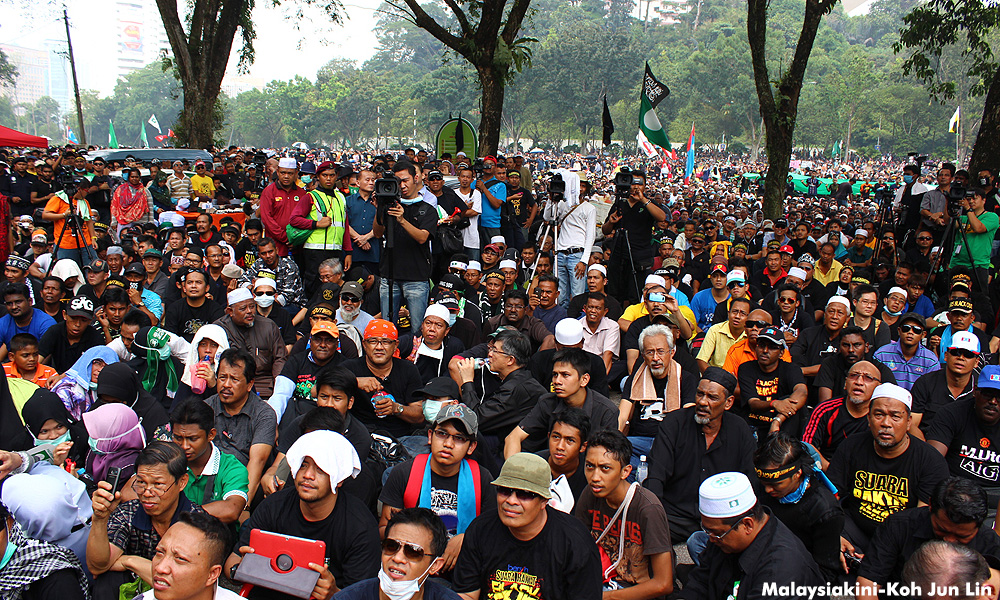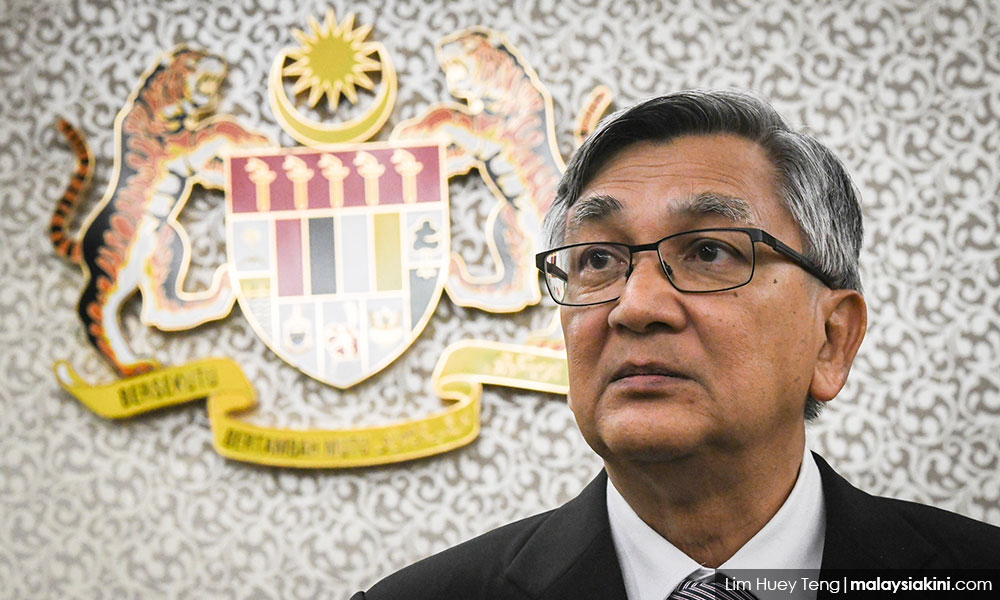The following is an exclusive excerpt from ‘Malaysian Son: A progressive’s political journey in the heart of Southeast Asia’, a memoir by Keadilan vice president and Setiawangsa MP Nik Nazmi Nik Ahmad.
Anwar Ibrahim tweeted on the morning after the [disappointing 2013] election, ‘Wear black.’ The party leadership decided to organise a gathering in the Petaling Jaya Stadium [in my constituency]. I liaised with the state and local authorities to book the stadium as well as inform the police on the same day about what eventually came to be known as the ‘Blackout 505 Rally’.
Previously, whenever I organised ‘ceramahs’ or rallies, I would get one of my staff to write a letter to inform the police about the event, as required by the law. This was to minimise my risk should the police take action. But I knew that this time it would be different, and I took the responsibility of writing to the police in my own name.
More than 100,000 Malaysians came to the rally that night. People filled the football field, as well as the terraces, to the brink. Nearby, at the Paradigm shopping mall, black t-shirts ran out at many retail shops as customers were looking for something black to wear at the stadium. It came to a point that the toll to the North Klang Valley Expressway was jammed with the volume of traffic and cars parked by the roadside. People walked for kilometres in the rain to show their support, but I also had friends and family caught in the jam who complained to me about it!
In my speech, I said that the call for change transcended race, as opposed to what then prime minister Najib Abdul Razak and Umno were arguing. The annoying part was that since the 2010 football World Cup in South Africa, the vuvuzela had made an appearance in Malaysian political rallies and protests as well; it can be a struggle to get your voice heard above all the noise!

As expected, the next day I received a summons to appear in court. I was charged at the Sessions Court in mid-May under Section 9(5) of the Peaceful Assembly Act for failing to give a 10-day notice to hold the rally. If found guilty, I was liable to a maximum fine of RM10,000, which would mean I would lose my seat.
From the beginning, I declared that this was political persecution which went against the talk of national reconciliation that was being mooted by Najib in the aftermath of the election. I pleaded ‘not guilty’ and my legal team focused on challenging the Peaceful Assembly Act, arguing that it violated the right to freedom of assembly guaranteed under the Federal Constitution. Pakatan Rakyat organised ‘Blackout 505’ rallies across the country, attracting huge crowds, and I spoke at a few of the events.
In January 2018, the Court of Appeal dismissed the government’s appeal to increase my fine of RM1,500 under the Peaceful Assembly Act for the 2013 ‘Blackout 505’ case. The federal and state constitutions disqualify a citizen who has been fined not less than RM2,000 from contesting elections. It was a long and arduous legal journey for me. I was charged for not giving sufficient notice in 2013. First, my legal team challenged the constitutionality of the provision under the act, losing in the High Court.
However, in a pioneering decision at the Court of Appeal in 2014, the three judges unanimously decided that the provision was unconstitutional. They allowed my appeal, set aside the charge, and acquitted and discharged me of the same.
Justices Mohamad Ariff Md Yusof (later speaker of the Parliament), former Bar Council president Mah Weng Kwai, and former academician Hamid Sultan Abu Backer delivered individual judgments declaring that the fine for not abiding by the required 10-day notice of the Peaceful Assembly Act was inconsistent with the fundamental freedom of assembly as enshrined in the Federal Constitution. Essentially, the three judges agreed that the government cannot criminalise the basic freedom to assemble.
“That which is fundamentally lawful cannot be criminalised,” said Mohamad Ariff.

I was pleased and relieved. Unfortunately, it did not stop there. The government tried to charge me again in the lower courts. The judges rightly declared that they were bound by the decision of the Court of Appeal. In the following year, in a second case involving Johor Keadilan executive secretary R Yuneswaran, the Court of Appeal departed from the decision in my case and upheld the constitutionality of Section 9(5) of the Peaceful Assembly Act.
Three years after first being charged for ‘Blackout 505’, I was brought to court again in 2016. I talked things over with my legal team and we decided that as the government seemed hell-bent on finding me guilty - and with the decision of the Yuneswaran case - I pled guilty. There were other such cases and we reached an agreement with the deputy public prosecutor where we were told that the sentence would be below the RM2,000 threshold - allowing me to keep my Seri Setia seat and contest in the next election.
I was fined RM1,500. The government appealed again, pushing for a more severe sentence. It was a nightmare that I could never seem to wake up from. The High Court maintained the sentence, but surprise, surprise, the government appealed again to the Court of Appeal. Then came the January 2018 decision where the Court of Appeal saw no need to increase the fine.
Due to the repeated trials on ‘Blackout 505’, I decided to sue the attorney general and the Malaysian government. My legal team argued that the decision to charge me repeatedly, in spite of my 2014 acquittal in the Court of Appeal, proved that this was a case of malicious prosecution. At the Kuala Lumpur High Court in December 2017, Justice Ahmad Zaidi Ibrahim ruled that the decision to prosecute me was “shocking and arbitrary”. The court awarded me RM230,000 in damages.- Mkini

No comments:
Post a Comment
Note: Only a member of this blog may post a comment.